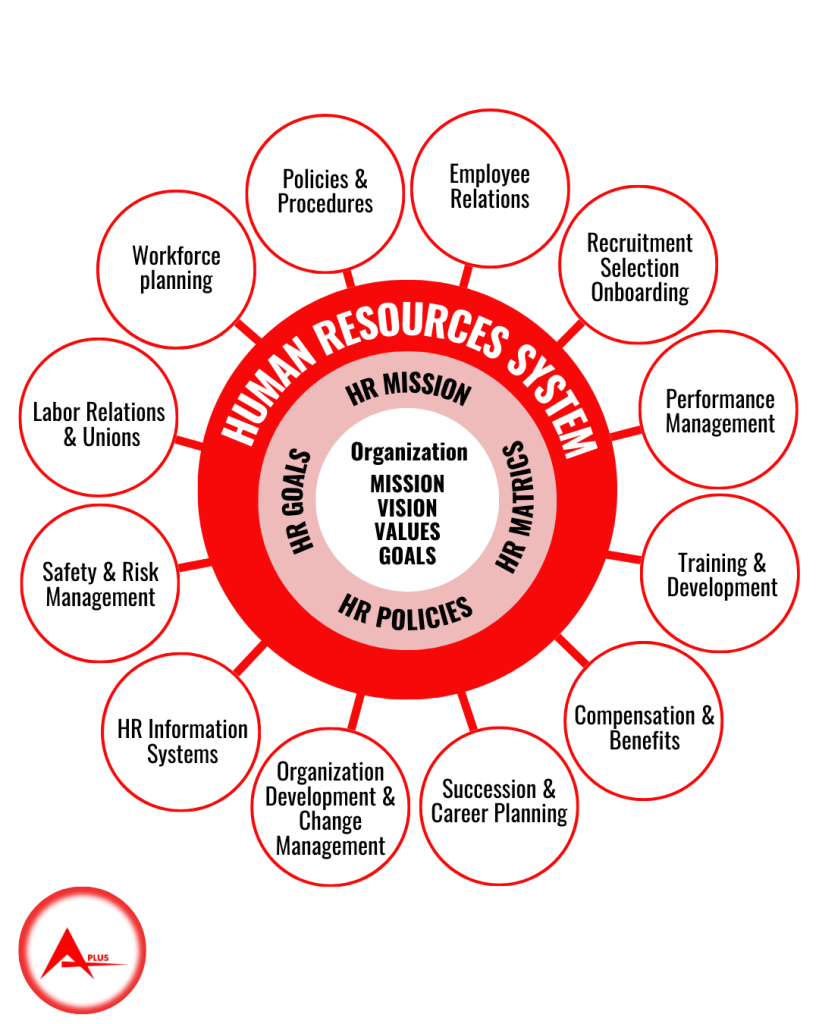Introduction
Imagine running a business with no clear hiring process, no employee guidelines, and no way to track performance. Chaos, right? That’s what happens when businesses overlook HR. Human Resources (HR) is more than just a department—it’s the foundation of a strong and successful business. Many business owners think HR management is only about hiring and firing, but in reality, it plays a crucial role in building and maintaining a productive workforce. A well-structured HR strategy ensures that employees are motivated, trained, and aligned with business goals. Without good HR, businesses struggle with high turnover, compliance risks, and unmotivated teams. Let’s dive deep into why HR is critical for business success and the risks of neglecting it.

1. Hiring the Right People
Every business needs skilled and reliable employees to grow. HR ensures the right recruitment process is in place, from defining job roles to screening and interviewing candidates. A strong HR recruitment strategy saves businesses from costly hiring mistakes and ensures they attract top talent. Without proper hiring practices, businesses risk high turnover, poor performance, and low morale.
2. Employee Onboarding & Retention
Hiring doesn’t stop at recruitment. A structured onboarding process helps new employees settle in, understand company culture, and become productive faster. HR onboarding programs ensure new hires feel welcome and have the tools they need to succeed. Businesses with strong onboarding programs experience higher employee retention and engagement, reducing costs associated with frequent rehiring.
3. Performance Management
How do you know if your employees are performing well? HR sets up performance management systems to track progress, provide feedback, and help employees improve. Regular employee evaluations and goal-setting ensure that employees stay on track and contribute to business growth. Without HR performance management, businesses struggle to measure employee performance and risk low productivity.
4. Training & Employee Development
A business is only as strong as its employees. HR training and development programs upskill workers, increase efficiency, and keep teams competitive. Investing in employee training leads to higher job satisfaction, increased productivity, and a workforce that can adapt to industry changes.
5. Compensation & Benefits Management
Paying employees fairly and offering competitive benefits is key to attracting and retaining top talent. HR compensation and benefits management ensures that salaries are competitive, bonuses are well-structured, and employee benefits (such as health insurance, paid leave, and retirement plans) meet expectations. Without HR managing compensation, businesses risk losing valuable employees to competitors.
6. HR Compliance & Labor Law Adherence
Businesses must follow labor laws and workplace regulations to avoid legal trouble. HR compliance ensures businesses follow employment laws, workplace safety standards, and fair labor practices. It also creates policies to prevent workplace issues such as discrimination, harassment, and unfair treatment. Failure to comply with labor laws can lead to lawsuits, fines, and reputational damage.
7. Workplace Culture & Employee Relations
HR plays a huge role in shaping company culture. It fosters a positive work environment by promoting teamwork, addressing conflicts, and improving communication between employees and management. A strong HR culture strategy boosts employee morale, reduces turnover, and increases business success.
8. Risk Management & Workplace Safety
A safe workplace is essential for employee well-being. HR risk management ensures compliance with occupational safety laws, provides training on safety protocols, and reduces workplace accidents. Strong HR policies help businesses operate smoothly.
9. Succession Planning & Leadership Development
Future business success depends on strong leadership. HR succession planning identifies and develops employees who have leadership potential, ensuring businesses have a pipeline of skilled managers and executives. Without succession planning, businesses risk instability when key employees leave.
10. Workforce Planning
A successful business requires a well-thought-out workforce strategy. HR workforce planning ensures businesses have the right people in the right roles at the right time. It involves forecasting future hiring needs, analyzing skill gaps, and creating long-term talent strategies. Without HR workforce planning, businesses struggle with sudden staff shortages, poor resource allocation, and talent mismanagement.
11. Employee Relations
Maintaining strong employee relationships is vital for workplace harmony. HR employee relations management focuses on resolving conflicts, improving communication, and ensuring fair treatment of employees. A positive employee relations strategy fosters a productive work environment, reduces disputes, and increases job satisfaction. Without HR handling employee relations, businesses risk workplace tension, high turnover, and legal issues. Future business success depends on strong leadership. HR succession planning identifies and develops employees who have leadership potential, ensuring businesses have a pipeline of skilled managers and executives. Without succession planning, businesses risk instability when key employees leave.
The Risks of Poor HR Management
Ignoring HR can be a costly mistake for any business. Here are some risks businesses face without a strong HR strategy:
– High Employee Turnover – Constant rehiring drains time and resources.
– Legal Issues & Fines – Non-compliance with labor laws leads to lawsuits.
– Low Employee Morale – Poor HR policies create unhappy and unmotivated teams.
– Workplace Conflicts – Lack of employee relations management results in disputes.
– Poor Performance – No clear performance tracking leads to low productivity.
The Benefits of a Strong HR System
On the other hand, investing in HR best practices brings major benefits:
– Stronger Workforce – HR ensures skilled employees are hired and retained.
– Better Compliance – Avoid legal risks with proper policies and regulations.
– Higher Employee Engagement – Motivated teams perform better and stay longer.
– Efficient Business Growth – HR helps businesses scale by building strong teams.
– Improved Workplace Culture – A positive work environment increases productivity.
Conclusion
HR is not an optional department—it is the backbone of every business. From recruitment and training to compliance and workplace culture, HR ensures businesses run efficiently and employees perform at their best. A strong HR strategy leads to business growth, reduced risks, and a thriving workforce.
Need support with HR? Contact us for free HR Consultation today! We specialize in building strong HR systems that drive business success.